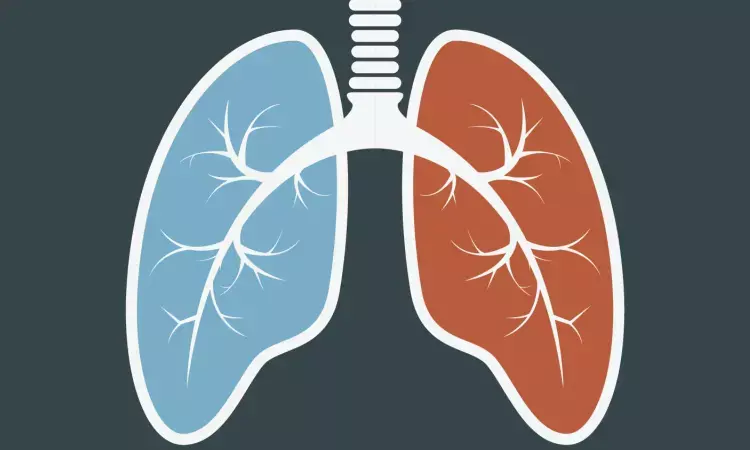- Home
- Medical news & Guidelines
- Anesthesiology
- Cardiology and CTVS
- Critical Care
- Dentistry
- Dermatology
- Diabetes and Endocrinology
- ENT
- Gastroenterology
- Medicine
- Nephrology
- Neurology
- Obstretics-Gynaecology
- Oncology
- Ophthalmology
- Orthopaedics
- Pediatrics-Neonatology
- Psychiatry
- Pulmonology
- Radiology
- Surgery
- Urology
- Laboratory Medicine
- Diet
- Nursing
- Paramedical
- Physiotherapy
- Health news
- Fact Check
- Bone Health Fact Check
- Brain Health Fact Check
- Cancer Related Fact Check
- Child Care Fact Check
- Dental and oral health fact check
- Diabetes and metabolic health fact check
- Diet and Nutrition Fact Check
- Eye and ENT Care Fact Check
- Fitness fact check
- Gut health fact check
- Heart health fact check
- Kidney health fact check
- Medical education fact check
- Men's health fact check
- Respiratory fact check
- Skin and hair care fact check
- Vaccine and Immunization fact check
- Women's health fact check
- AYUSH
- State News
- Andaman and Nicobar Islands
- Andhra Pradesh
- Arunachal Pradesh
- Assam
- Bihar
- Chandigarh
- Chattisgarh
- Dadra and Nagar Haveli
- Daman and Diu
- Delhi
- Goa
- Gujarat
- Haryana
- Himachal Pradesh
- Jammu & Kashmir
- Jharkhand
- Karnataka
- Kerala
- Ladakh
- Lakshadweep
- Madhya Pradesh
- Maharashtra
- Manipur
- Meghalaya
- Mizoram
- Nagaland
- Odisha
- Puducherry
- Punjab
- Rajasthan
- Sikkim
- Tamil Nadu
- Telangana
- Tripura
- Uttar Pradesh
- Uttrakhand
- West Bengal
- Medical Education
- Industry
Veno-Arterial Extracorporeal Life Support for Acute Pulmonary Embolism Improved Outcomes

A recent study published in The Annals of Thoracic Surgery highlights the outcomes of patients who underwent Veno-Arterial Extracorporeal Life Support (VA-ECLS) for various indications by majorly focusing on acute pulmonary embolism (PE). The study by Erik Scott and team examined data from the Extracorporeal Life Support Organization global registry that spanned from 2010 to 2019.
The findings analyzed a cohort of 26,583 patients in total with 978 (3.7%) participants on VA-ECLS for acute PE as the primary diagnosis that revealed significant differences in outcomes based on the indication for VA-ECLS. The patients receiving VA-ECLS for acute PE were found to have a significantly higher likelihood of survival to hospital discharge compared to those supported for other reasons.
The individuals undergoing VA-ECLS for acute PE were 78% more likely to be discharged alive by highlighting the potential efficacy of this intervention in managing acute PE cases. Also, these patients expressed fewer cardiovascular and renal complications when compared to their counterparts who were supported for other indications, suggesting a relatively smoother recovery trajectory.
However, the analysis also unveiled higher rates of mechanical complications among patients who undergo VA-ECLS for acute PE that suggests the need for careful monitoring and management of such issues during treatment.
The outcomes of the study emphasized the significance of guiding clinical decision-making for patients requiring VA-ECLS support, particularly in cases of acute PE. Additional findings underscore the importance of considering VA-ECLS as a crucial intervention for acute PE cases, given the improved survival outcomes observed in this patient population. While further research is mandated to analyze deeper into the nuances of VA-ECLS outcomes across different indications, this study provides valuable insights into the potential benefits and considerations associated with employing VA-ECLS in cases of acute PE.
Reference:
Scott, E. J., Young, S., Ratcliffe, S. J., Wang, X.-Q., Mehaffey, J. H., Sharma, A., Rycus, P., Tonna, J., Yarboro, L., Bryner, B., Collins, M., & Teman, N. R. (2024). Veno-Arterial Extracorporeal Life Support Use in Acute Pulmonary Embolism Shows Favorable Outcomes. In The Annals of Thoracic Surgery. Elsevier BV. https://doi.org/10.1016/j.athoracsur.2024.02.008
Neuroscience Masters graduate
Jacinthlyn Sylvia, a Neuroscience Master's graduate from Chennai has worked extensively in deciphering the neurobiology of cognition and motor control in aging. She also has spread-out exposure to Neurosurgery from her Bachelor’s. She is currently involved in active Neuro-Oncology research. She is an upcoming neuroscientist with a fiery passion for writing. Her news cover at Medical Dialogues feature recent discoveries and updates from the healthcare and biomedical research fields. She can be reached at editorial@medicaldialogues.in
Dr Kamal Kant Kohli-MBBS, DTCD- a chest specialist with more than 30 years of practice and a flair for writing clinical articles, Dr Kamal Kant Kohli joined Medical Dialogues as a Chief Editor of Medical News. Besides writing articles, as an editor, he proofreads and verifies all the medical content published on Medical Dialogues including those coming from journals, studies,medical conferences,guidelines etc. Email: drkohli@medicaldialogues.in. Contact no. 011-43720751


